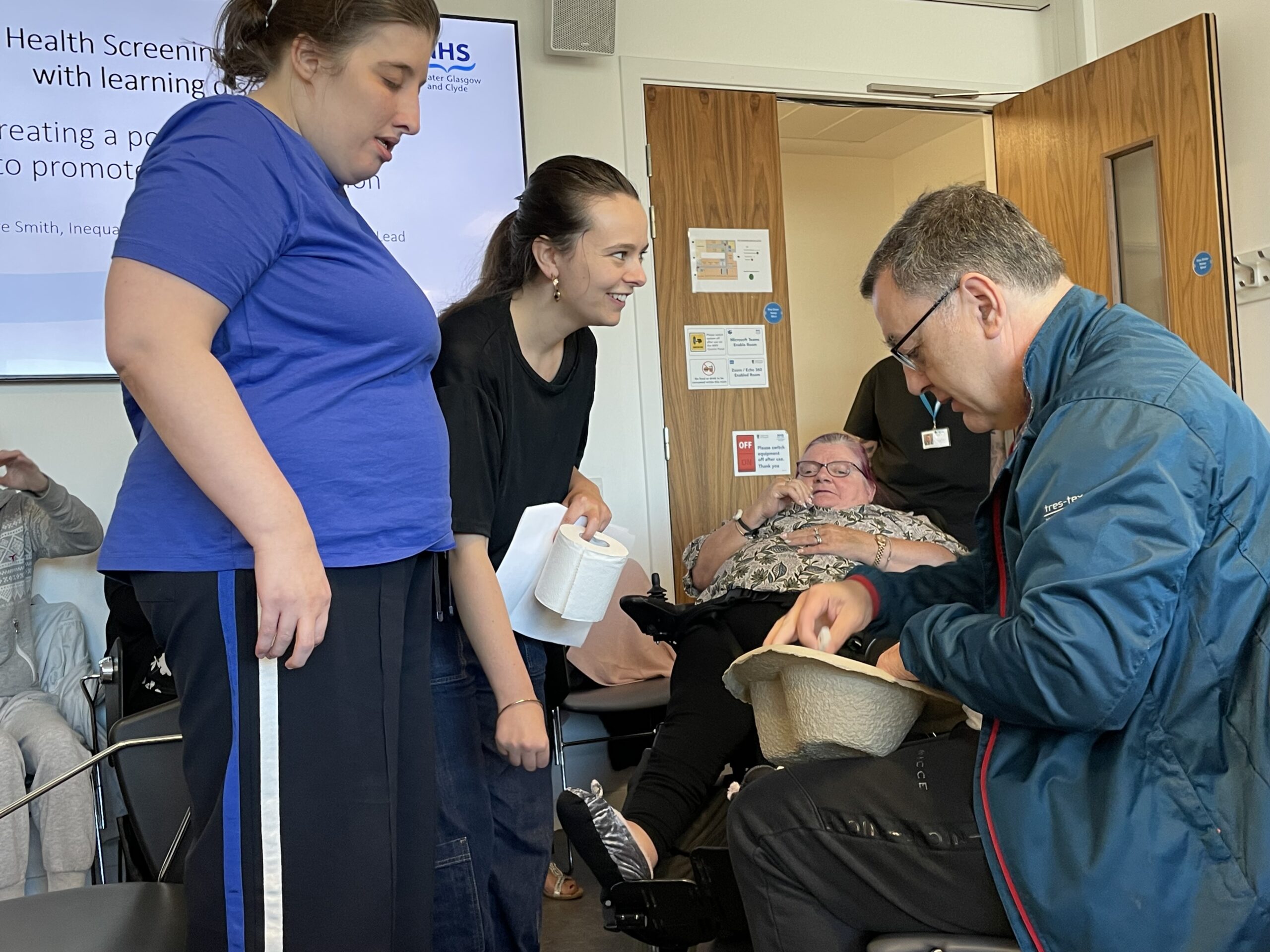
Today, a group of Greater Glasgow and Clyde adults with learning disabilities took to the stage to highlight the importance of effective conversations about bowel cancer screening.
The Mainstay Drama Club put a light-hearted twist on the at-home ‘poo test’ that saves lives through early detection of bowel cancer, as part of an event hosted by the NHS Greater Glasgow and Clyde Inequalities Sensitive Practice Project.
From a parody of Elvis’ classic, “Ain’t Nothin’ but a Hound Dog” (transformed into “Ain’t Nothin’ but a Bowel Test”) to a Hokey Pokey adaptation and a dance with a Bollywood twist, the club found a fun way to relay the fears and challenges that someone with a learning disability might face with bowel cancer screening.
Hosted at the Queen Elizabeth University Hospital Teaching and Learning Centre, their performance also helped specialist service staff better understand how to discuss screening with people who have learning disabilities.
The bowel cancer screening programme invites all men and women between the ages of 50–74 to participate in screening once every two years by returning a sample taken at home using a nationally supplied kit. Between April 2021 and March 2023, 60.5% of those invited returned the screening test. However, among those registered with a learning disability, the uptake of screening was lower at 44.5%.



The Inequalities Sensitive Practice Project from NHSGGC is calling for more people aged 50-74 with learning disabilities to screen for bowel cancer at home and for their supporting communities to encourage them in doing so. Clare Smith, NHSGGC Inequalities Sensitive Practice Development Lead, explained the importance of today’s event:
“I’m so proud of what the group brought to life for healthcare professionals today and I thank them for their fantastic performance. The role of the project is to remove barriers in health screening for individuals with learning disabilities. The message from the drama group was clear – these conversations with people who have learning disabilities matter.”
Bowel cancer was the third most common cancer in Scotland for both men and women in 2021. The aim of bowel screening is to detect bowel cancer at an early stage where treatment is more effective.
Clare continued: “The bowel screening test isn’t invasive and, while the thought of it seems a little embarrassing, it can be done in comfort at home. This, however, can be incredibly daunting to someone with learning disabilities, and knowing how to approach the conversation is important.”
Anyone who is unsure if they or their loved one is due their bowel screening test, can check by contacting the national bowel screening centre – 0800 0121833 or can order a replacement kit to be delivered to their home via this link: Request a home bowel screening test kit | NHS inform.

